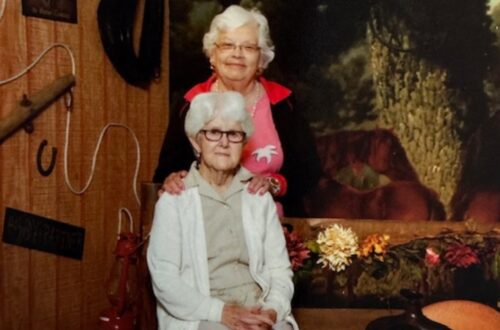
The Diagnosis isn’t the End
 A dementia diagnosis can be devastating, but it doesn’t mean the end of your loved one’s life or memories. While dementia gradually affects memory, reasoning, and daily activities, it’s important to remember that the progression is often slow and varies from person to person.
A dementia diagnosis can be devastating, but it doesn’t mean the end of your loved one’s life or memories. While dementia gradually affects memory, reasoning, and daily activities, it’s important to remember that the progression is often slow and varies from person to person.
Dementia encompasses over 100 conditions, including: :
- Alzheimer's
- Frontotemporal Dementia
- Vascular Dementia
- Parkinson's
- Lewy Body Dementia
- Multi-Infarct Dementia
- Huntington's Disease
- Creutzfeldt-Jakob Disease
- Alcohol-related Dementia
- Down Syndrome with Alzheimer's
- HIV Associated Dementia
- Childhood Dementia
They all impact reasoning, memory & activities of daily life, but there are different symptoms associated with each different disease.
Most are a slow (albeit progressive) decline. Individuals can decline at widely varying rates. My Dad passed within seven years of his Parkinson's diagnosis, yet my mom just ended her 22-year-long struggle with Vascular Dementia.
Dad knew things were wrong, and it stressed him. Stress makes the disease progress faster. Other factors likely contributed to his quick decline, but stress is a proven harmful emotion, especially when associated with any form of Dementia. (At least any form that I know of. It's possible there are some small segments unaffected by stress.)
Mom was blissfully unaware anything was wrong, even though she didn't remember names, places, or what we just said. She wasn't stressed about anything.
 People often live for several or many years as the Dementia journey progresses. A doctor cannot give you a life expectancy date; only God knows.
People often live for several or many years as the Dementia journey progresses. A doctor cannot give you a life expectancy date; only God knows.
And there is A LOT of LIFE left in those years Even toward the end when the language ability is gone, there are still:
Even toward the end when the language ability is gone, there are still:





Pro Tip: Lower your face to be at eye level with your loved one. Puff out your cheeks and make a crazy face. They will generally laugh and mimic your funny face, and you can both laugh; no words are needed! That and dancing were two of Mom's favorite things to do when the ability to speak coherently was gone.
Help is here. You don't need to struggle alone.
Need ideas for activities to engage with your loved one?
Need to vent to a person who has been there?
Having trouble finding the right resources, support, and strategies to reduce wandering or deal with hallucinations?
Stress is a significant factor in the progression of dementia. Managing stress can slow the decline and improve quality of life. If you need support, ideas for engaging activities, or resources to help with challenges like wandering or hallucinations, I’m here to help.
I’ve opened five spots on my calendar for a free, no-obligation chat. Whether you need advice, someone to talk to, or strategies for caregiving, I’m available to support you.
Message me today or email Deb@ThePurpleVine.com to secure your spot and receive encouragement and actionable advice.





